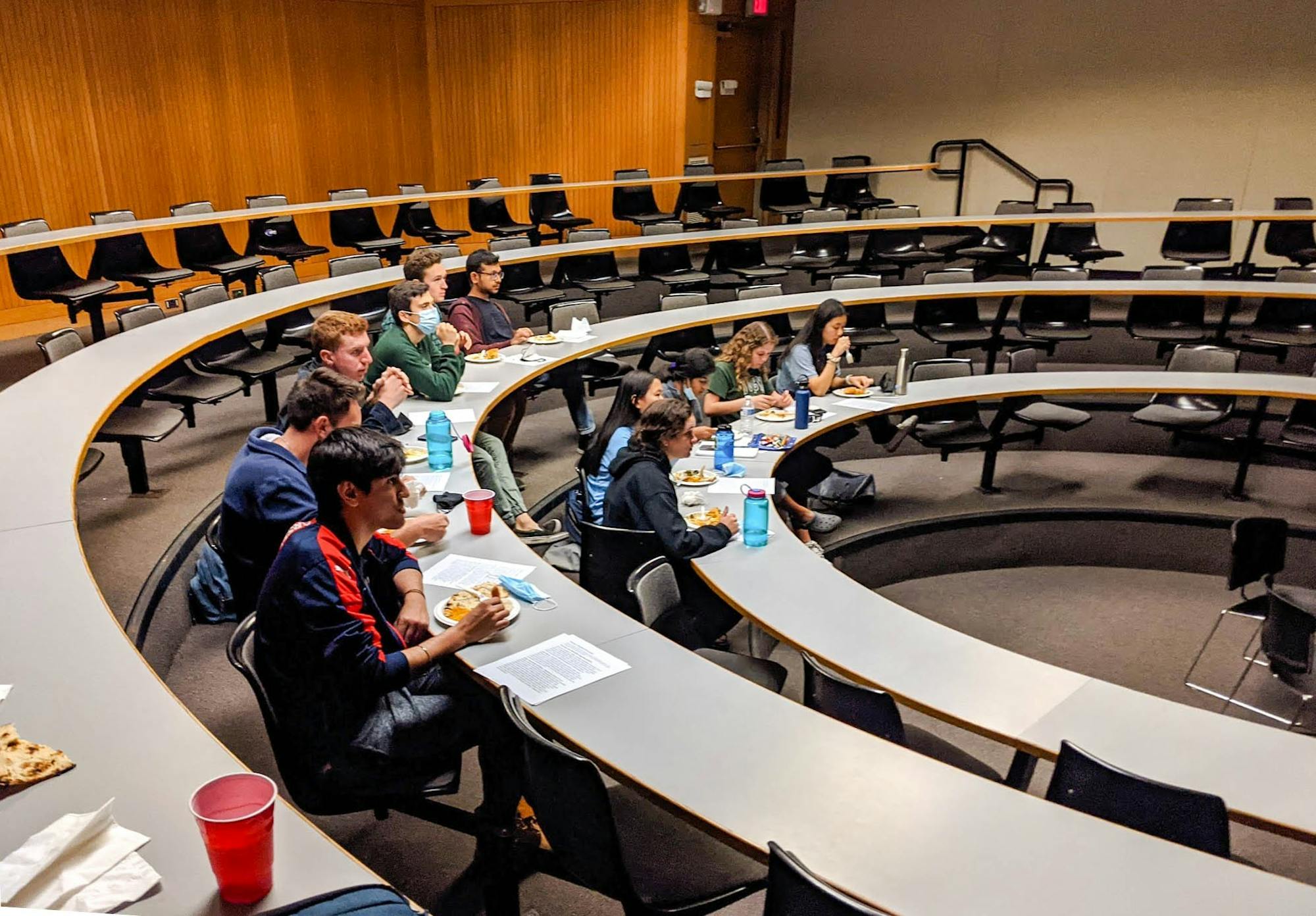As College-sponsored travel resumes after the cancellation of domestic and international trips due to the COVID-19 pandemic, two courses — ECON 70.03, “Macroeconomic Policy in Latin America,” and PBPL 85, “Topics in Global Policy Leadership” — will be conducting off-campus study trips during this year’s winterim break.
ECON 70.03 will be traveling to Chile for 12 days to speak to local experts on Chile’s economy, according to economics professors Marjorie Rose and Douglas Irwin, who are teaching the course. However, Rose said that the trip will not include travel to Argentina like normal, as the College “strongly discouraged” visits to the country due to the pandemic. Students will talk to experts remotely to study Argentina’s economy, Irwin noted.
Meanwhile, PBPL 85 students will be traveling to Washington, D.C. for close to two weeks to speak with experts about public health infrastructure and innovation in the U.S., according to government professor Herschel Nachlis, who is teaching the class.
Nachlis noted that PBPL 85 usually travels abroad and chooses different locations to visit each year. In late 2019, PBPL 85 students visited Greece, Germany and Switzerland.
Nachlis added that when the planning for this winterim break’s edition of PBPL 85 began last year, the Rockefeller Center for Public Policy wanted to retain as much of the “core” of the course as possible — which entails “intensive study of a subject on campus and then traveling to talk with experts off-campus.” Given the global uncertainty of COVID-19, the Rockefeller Center committed to traveling domestically to maximize the chances of a successful off-campus trip, Nachlis said.
In contrast, Rose and Irwin said that even when ECON 70.03 began this fall, they were unsure whether they would be traveling off campus at all. Rose explained that students were informed during course registration that, if pandemic restrictions persisted, the study abroad component would be canceled — instead, the economics department would attempt to arrange a trip during spring break.
Rose also said that she and Irwin only confirmed that the class could visit Chile two weeks ago when the Chilean government eased restrictions on foreigners entering the country.
Pranit Gupta ’22 said that traveling was an important factor for him when enrolling in ECON 70.03.
“I think I speak for almost everybody in the class — what makes this course different from others is being able to travel,” Gupta said.
According to Gupta, several students considered dropping the course if the winterim trip was ultimately canceled.
Sachin Shiva ’22 and Blake McGill ’22, who are enrolled in PBPL 85, said that their previous College-sponsored travel was canceled due to the pandemic. Shiva had been accepted into the government department’s domestic study program in Washington, D.C., while McGill was planning to travel with the War and Peace Fellows program, which she said typically conducts one domestic and one international trip each year.
Shiva said that given ongoing pandemic restrictions, the ability to travel — even domestically — is a “great opportunity” that motivated him to enroll in the course.
In contrast, McGill called the ability to travel a “plus” but said she did not find it crucial — adding that she was most drawn to the course’s focus on public health. However, both Shiva and McGill said that they would have wanted to travel internationally if it were possible.
Nachlis noted that student interest for PBPL 85 was “very high” this year. Rose also said that interest in ECON 70.03 was slightly higher than usual, although she noted that applications were “somewhat self-selective” due to the uncertainty of the study abroad component.
A third winterim program in Vietnam, run by the Asian Societies, Cultures and Languages department, was supposed to move forward this year, but was recently canceled due to the COVID-19 situation in the country. The program has been rescheduled for next year’s winterim break with originally enrolled students receiving priority, according to the program’s website.
Shiva, McGill and Gupta all expressed hope that more travel opportunities would resume. Shiva noted that vaccination rates in many countries are increasing quickly. In reference to the College discouraging travel to Argentina, Gupta added that he believes the College should “make a better assessment of where it’s safe to travel to,” noting how the country’s COVID-19 case counts are “rapidly declining.” Chile has a higher daily case count than Argentina as of Oct. 28, according to data from The New York Times — 9.1 cases per 100,000 versus 2.7.
McGill said she recognized that there are “liability concerns” with resuming travel, but felt that “the College should allow students the opportunity to travel if they feel comfortable doing so.”
Professors have expressed hopeful sentiments for the future of academic travel programs. Nachlis said he appreciates the College being supportive of experiential learning opportunities and hopes to see such opportunities grow. Rose added how she thinks the opportunity for students to apply what they learned in class to a real-world economy is “invaluable.”
“There is nothing that can take the place of actually going into a country and seeing the impact of what students have learned firsthand,” Rose said.
Blake McGill is a former member of The Dartmouth staff.




